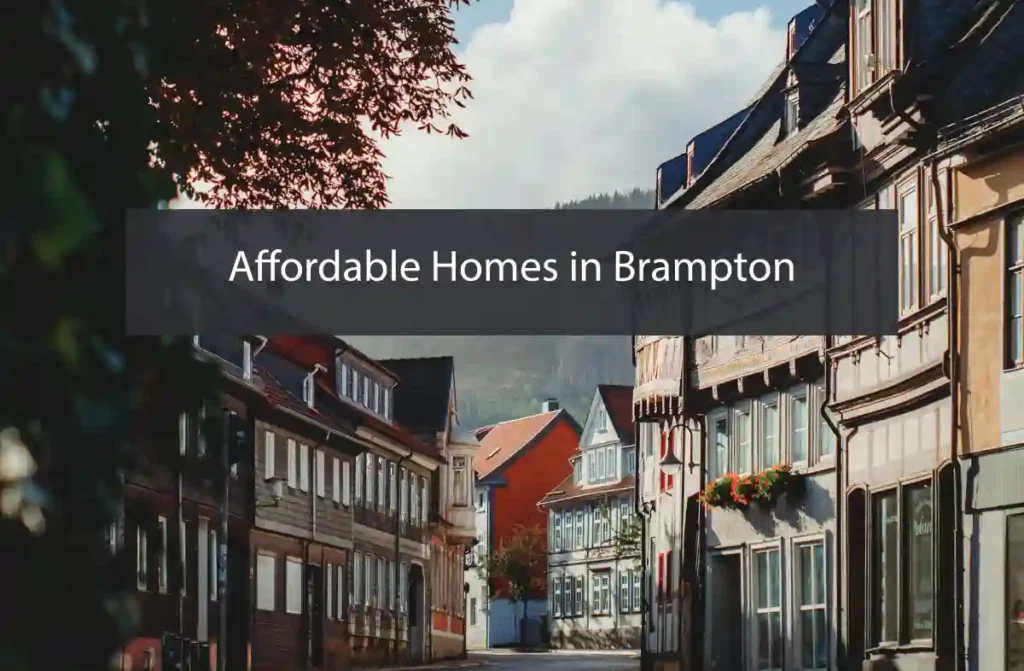Curious about allodial title Canada? Learn what it means, its history, and its relevance in modern property ownership. Discover the types of tenure, property rights, and tips for homeowners and buyers.
Table of Contents
When you buy real estate in Canada, you may encounter different terminologies that relate to property ownership. One of the terms that comes up occasionally is allodial title canada. It is crucial for homeowners and potential buyers to know what allodial title and how it applies to property ownership in Canada. This article looks at the concept of allodial title canada, its historical background, and its relevance within modern day Canadian real estate.
What Does Allodial Title Mean?
Allodial title canada is a system of landholding whereby an individual owns land without any superior landlord or sovereign authority. Essentially, it represents the highest form of locational control where there are no obligations from higher authorities like government towards a specific landowner. The word “allod” has its roots in feudal law which often linked land with monarchs or nobles.
Historical Background
Medieval Europe’s landownership structure was mainly based on the feudal system. In this system, lords would give out lands to vassals who were supposed to serve them faithfully as compensation for the same lands being under their jurisdiction. Allodial title canada came into existence as an alternative way of holding land that did not involve these feudal responsibilities.
Unlike the feudal system where individuals had to swear fealty for holding lands, in allodial title canada ownership individuals could own lands outright without being subject to any fiefdoms or suzerains’ powers over them. This kind of possession was inconceivable save for sovereign entities or people with extraordinary correlation.
Allodial Title Canada
The concept of allodial title canada does not exist today in contemporary Canada as it did during medieval Europe’s feudal period. The Canadian property ownership system is based upon common law, meaning that every piece of land technically belongs to the Crown (the government). This is known as Crown Land Doctrine.

Under such a policy, various types of tenure can be used by individuals or corporations such as freehold and leasehold but overall ownership lies with the Crown. Thus, while property owners enjoy a lot of rights and powers over their lands, they are still subject to the regulations and taxation by the government.
Types of Property Ownership in Canada
To gain a better understanding of how property ownership works in Canada, it is necessary to identify between different types of tenure:
- What is Freehold Ownership? The word “freehold” also known as fee simple refers to most common type of land ownership in Canada. This means that the landowner has entire control over the land and buildings thereon but they are subject to local laws and regulations. Such freehold owners can sell, lease or will out their land.
- Leasehold Ownership: Leaseholds take place when an individual or organization holds on a lease for particular duration from either Crown or any other person who owns that piece of land. While on lease during this time period, tenants possess development rights or may have usufructuary rights provided these do not contradict with a written agreement signed at the time of entering into an agreement.
- Condominium Ownership: Condominium ownership means owning a unit within a building or complex together with an interest in common areas shared among other owners. Owners must abide by rules established by the corporation that runs the condominium.
- Co-Ownership: Co-ownership is where two or more people own property together. Every co-owner has a specific fraction of the property and can use, sell or transfer their fraction as per the agreement on co-ownership.
Myth of Allodial Title Canada
In spite of historical importance that has been attached to allodial title canada, it must be noted that this is not applicable to modern Canadian property ownership. This supposedly simple concept of owning land free from government interference is a misunderstanding.
All lands in Canada are held by the Crown at last. These landholders could be under different types of tenure, but they still pay taxes and must adhere to zoning laws and other policies set by federal, provincial and local governments.
Implications for Homeowners and Buyers
This again raises the issue about true position as far as property ownership in Canada is concerned. Some aspects include:
- Property Taxes: As a property owner in Canada, you are bound by law to pay municipal property taxes which fund local services like public schools, roads, fire protection etc. The rate at which these taxes are calculated depends on municipal assessed value that makes up your properties number.
- Zoning and Land Use Regulations: Property owners need to observe zoning bylaws and land use regulations developed by their respective municipalities since there are no common legislations for this country’s states or provinces. Such regulations may guide development and use of land such as restricting type of developments, building size specifications or environmental protection measures.
- Property Rights: Despite having rights over their properties including selling them off or transferring them through leases among others; all these have conditions attached on them as per government provisions over it. You should know what rights you have concerning your properties so that you can make good decisions about real estate investments.
- Due Diligence: Due diligence is mandatory when buying property anywhere in Canada because the purchase can take one into unforeseen debt if not properly investigated before hand such as knowing whether one is purchasing a freehold or leasehold interest with respect to the titles; finding out if there are other encumbrances ie easements attaching to the titles; checking any compliance with zoning by-laws and other municipal regulations.
The Importance of Title Insurance
Since property is a complicated issue; it follows that title insurance can help protect the rights of individuals who own it. This type of policy will cover things such as ownership disputes, unpaid property taxes and zoning violations that may exist on a title.

Homeowners and buyers can protect themselves against unforeseen lawsuits or bankruptcy by obtaining title insurance when they buy properties.
Conclusion
While allodial title canada presents a situation in which land is owned absolutely without any countervailing authority, this is not applicable to present-day Canadian ownership of land. In Canada, the Crown owns all land and people hold their lands under various forms of tenure like freehold, leasehold, condominium or co-ownership.
For homeowners and would-be property owners alike, it is important to understand the realities around owning a piece of real estate in Canada which are paying property tax and obeying zoning laws at local level. It is also important for one to do due diligence before purchasing any piece of land so that he does not regret later on. For example one should enquire from his lawyer whether there are any easements attached to titles; whether the interest he proposes to purchase is freehold or leasehold among other issues.
By knowing what goes into property ownership in Canada you would be able to make well-informed decisions about your investments thus saving yourself from unnecessary lawsuits. This applies regardless if one already owns a home or seeks to invest in real estate through purchase because understanding the obligations and rights concerning your properties helps manage them wisely.
People Also Reading: Home Staging Tips | Maximize Your Home’s Appeal





